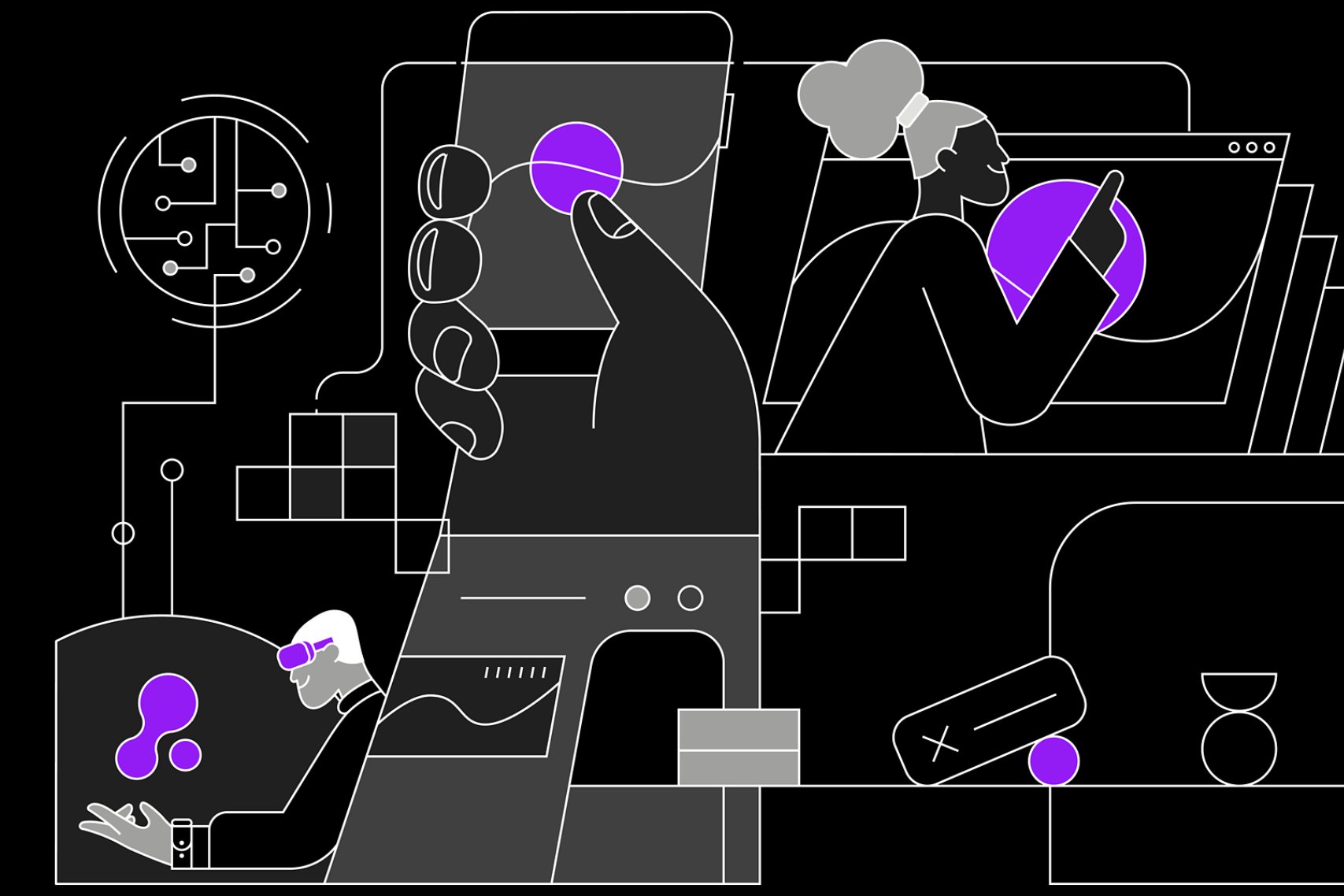
A new dawn for the software & platforms industry
From how we live, work, shop and socialize, expanded tech and macro shifts have created new opportunities for software and platform companies to improve every aspect of our lives.
Software & platforms now
80%
of software and platform companies neglect substantial revenue streams by only transforming parts of their business rather than the whole
$3.5T
revenue opportunity for platforms who can secure their slice of the everything economy
96%
of tech executives are inspired by the new capabilities offered by generative AI
74%
of c-suite execs feel they need to completely rethink their operating models to be more resilient
How to reinvent software & platforms
Improve operational efficiency by fully leveraging data and generative AI
Open new revenue streams by developing experiences your customers actually want
Small to medium is big business
Enterprises and SMBs’ success is intertwined, and both benefit from improved collaboration. It’s time to accelerate SMB growth and help them thrive on their own terms.
85%
of enterprises believe they are effectively supporting their SMB partners, only 40% of SMBs agree.
Acquire
Identify and adopt new SMB customers and partners.
Onboard
Enable frictionless onboarding for all SMBs.
Engage
Drive customized SMB engagement and experiences.
Offer
Deliver relevant, SMB-specific solutions and programs.
Support
Provide proactive support tailored to SMB needs.
Attention is a precious commodity
Platform proliferation, competition for eyeballs, and data privacy shifts are causing a battle for attention. Capture and keep attention that drives new sustainable revenue streams by reinventing your advertising and subscription models.
1/3
of Advertisers are at risk of falling behind the competition for eyeballs.
Reach key B2B audiences
Reinvent ad sales and marketing with strategy and activation plans that boost revenues.
Strengthen customer lifetime value
Design and deliver better subscriptions and holistic services to improve revenue, margins and customer lifetime value.
Monetize new spaces and places
Develop powerful next-gen strategies and execution plans to fully monetize new spaces and places, inclusive of AR/VR/IoT.
Boost customer acquisition
Reinvent your B2C marketing, sales and services to grow your user base.
Maximize creator engagement
Leverage the burgeoning influencer, creator and builder economy to maximize revenue and engagement, and lower 'cost to serve’.
Embrace new strategies, models and partners to drive growth
Macro pressures and shifting consumer expectations require a new approach. Innovate products and optimize operations to improve CX and ROI.
74%
of c-suite execs feel they need to completely rethink their operating models to be more resilient.
Accelerated time to market
Bring products to market 3-5X times faster and rapidly accelerate time to value for your customers.
Accelerated revenue and customer acquisition
Increase effectiveness and return on engineering investments with improved ability to iterate by 60% - 70%.
Maintained customer trust and compliance
Reduce security incidents by up to 60% and unplanned downtime by over 50%.
Return on engineering investment
Experience 30% shorter customer acquisition cost than the market average with modernized strategies that drive marketing, sales and customer success.
Scale go-to-market and development efforts
Create network effects to activate developer and new partner ecosystems, lowering development sales and marketing expenses by 50%.
Solutions to drive hypergrowth
Consumer needs are constantly changing, placing pressure on platforms to remain relevant. Our solutions can help your platform plan for new growth, build stand-out experiences, get personal, secure trust, and provide your customers with what they want.
Build strategies to capture growth
Build the right growth strategies to innovate, increase profitability and accelerate time to market.
Anticipate and respond to fast-changing customer needs
Deliver experiences that attract, retain and meet the changing needs of your customers.
Deliver seamless new experiences
Place customer needs at the core by connecting new hardware and devices that provide seamless experiences.
Increase trust with all stakeholders
Maintain a trusted platform by deploying security, privacy, compliance, data protection and fraud mitigation strategies.
What’s trending in software & platforms
Awards and recognition
Our leaders
Kevan Yalowitz
Managing Director – Software & Platforms, Global Lead
Kathleen O’Reilly
Global Communications, Media and Technology Industry Practices Chair
Rachel Elliston
Managing Director – Software & Platforms, North America Lead
James Kim
Managing Director – Software & Platforms, Growth Markets Lead
Chris Mather
Managing Director – Software & Platforms, EMEA Lead
Nikki Mendonça
Managing Director – Accenture Song, Software & Platforms, Global